
Speakers
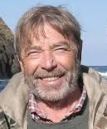
Eco-geographic units across environmentally diverse species’ ranges as useful surrogates of the species’ management units: Salmonid fishes of the North Pacific as an example.
Russian Federal Research Institute of Fisheries and Oceanography (VNIRO), Russia
Lev Zhivotovsky is a geneticist and mathematician, holds a position of Principal Investigator at the Russian Federal Research Institute of Fisheries and Oceanography (VNIRO) and a head of lab at the Institute of General Genetics (IOGen); he also is an affiliate faculty at the University of Alaska Fairbanks. He received his MS in mathematics from the Lomonosov Moscow State University and his PhD (Doctor of Sciences) in genetics from IOGen. For over thirty years, Lev has studied the population structure of salmonids and other marine species using genetic markers, statistical tools and mathematical models. His recent research focuses on environmental impacts that influence the population boundaries and migration patterns. Most recently, Lev has introduced an approach to studying population structures using as a template ‘eco-geographic units’ based on ecological and geographical gradients and life history parameters followed by the analysis of within- and between-unit DNA variation to test whether the boundaries of these units are ecologically and genetically coherent.
Environmental changes in the North Pacific and impacts on biological resources and ecosystem services
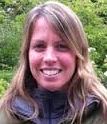
Mary Hunsicker NOAA, USA
Session 1 Invited Speaker
Dr. Mary Hunsicker is a Research Ecologist at NOAA Fisheries - Northwest Fisheries Science Center, USA. She received her MS in Marine Science from Stony Brook University and her PhD in Aquatic and Fishery Sciences from the University of Washington. Mary’s research interests focus on the structure and functioning of marine ecosystems and the potential impacts of climate variability and climate change on ecosystem components. Most recently, she has been using synthetic and analytical approaches to 1) identify nonlinearites and thresholds in relationships between climate drivers and human stressors and ecological responses, 2) test the utility of early warning indicators to reliably detect abrupt shifts in marine ecosystems, and 3) determine the influence of environmental variables on species distributions and interactions. Mary is a member of PICES WG-36: Common Ecosystem Reference Points across PICES Member Countries.
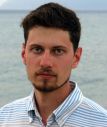
Kirill Kivva Russian Federal Research Institute of Fisheries and Oceanography (VNIRO), Russia
Session 1 Invited Speaker
Kirill Kivva is researcher at Russian Federal Research Institute of Fisheries and Oceanography (VNIRO). He received his BS and MS in Geography, and recent PhD in Oceanography from Lomonosov Moscow State University. Kirill is fishery oceanographer specialist with an interest in functioning of marine ecosystems at lower trophic levels and their connection to climate variability. His recent research is focused on reconstruction of seasonal and interannual dynamics of dissolved inorganic nutrients in the Bering Sea based on combination of available in situ data. Kirill promotes an idea of relatively simple data analysis that may reveal new findings. His work shows substantial differences in silicate-to-nitrogen seasonal draw-down ratios between oceanic and shelf areas of the Bering Sea. The results reflect primary productivity limitation patterns and phytoplankton community composition. Upcoming studies should address interannual variability of mentioned parameters and its effect on ecosystems.

Kanae Tokunaga Ocean Alliance, The University of Tokyo, Japan
Session 1 Invited Speaker
Kanae Tokunaga is a Project Researcher at the University of Tokyo – Ocean Alliance, where she primarily focuses on marine spatial planning implementation and integrated coastal and marine resource management. Her research also includes territorial use rights fisheries, fisheries co-management and migratory fish stocks management. She received her Ph.D. in Economics and Graduate Ocean Policy Certificate from the University of Hawaii at Manoa.
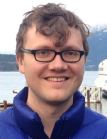
James Thorson NOAA, USA
Session 1 Invited Speaker
Jim Thorson is a statistical ecologist at the Northwest Fisheries Science Center in Seattle, WA. He received a Master’s degree from Virginia Tech and a Ph.D. from the University of Washington. He leads development of the FishStats spatio-temporal toolbox (www.FishStats.org) for use in population, ecosystem, habitat, and climate assessments. He has ongoing interest in meta-analyses of fish productivity, life history, and spatial dynamics, where he seeks to analyse operations-level data to learn about fish dynamics while avoiding misleading results associated with treating stock assessment estimates as “data”. He also contributes to Stock Synthesis, used for stock assessment worldwide. He received a Presidential Early Career Award for Scientists and Engineers in 2016, and is an associate editor at the Canadian Journal of Fisheries and Aquatic Sciences.
Microplastics in marine environments: Fate and effects

Seung-Kyu Kim Incheon National University, Korea
Session 2 Invited Speaker
Seung-Kyu Kim is an Associate Professor at the Incheon National University in Korea. He received his BS in Oceanography and his MS and PhD in Environmental Chemistry from the Seoul National University. Seung-Kyu conducted his postdoctoral research under the supervision of Dr. Krunthachalam Kannan at Wadsworth Center, New York State Department of Health, USA as a recipient of the Global Postdoctoral Fellowship nominated by Korea Research Foundation. He is an environmental chemist with an interest in the environmental fate and transport of pollutants such as legacy and emerging POPs, and their human and ecological exposure assessment. Over the past few years he has focused on the behavior and distribution of microplastics on a chain of movements from freshwater system to coastal region and open ocean, including mass balance in point source (wastewater treatment plants), airborne and riverine transport, inter-media transport in coastal and marginal open sea. Most recently, he leads a study on distribution mechanism of microplastics in the Arctic sea environment using Korean research ice breaker R/V Araon. His final goal is to link the mass flow of microplastics and its associated pollutants among coastal region, marginal seas (e.g., East China Sea and East Sea), open ocean (e.g., Pacific Ocean), and a polar region horizontally, and between surface and deep sea vertically.

Daoji Li East China Normal University, China
Session 2 Invited Speaker
Daoji Li is a Professor of the State Key Laboratory of the Estuarine and Coastal Research and Director of Marine Plastic Debris Research Centre at the East China Normal University. Over last three decades, he has been dedicated to marine environmental studies with a focus on estuarine & coastal ecosystems, which enables him to be one of most renowned scientists in China. Building on his high level of passion for ocean, he has developed and taken an active part in a number of national programs addressing marine environmental challenges. Serving as the chief scientist, he oversees and leads the National Key Research and Development Plan Project on Marine Microplastics Monitoring and Ecological Risk Assessment. Daoji is deeply committed to promoting cooperation among countries with his international leadership demonstrated through the initiation and development of a research and monitoring network for micro plastics in the Asia and Pacific.

Chelsea M. Rochman University of Toronto, Canada
Session 2 Invited Speaker
Chelsea Rochman is an Assistant Professor at the University of Toronto. She received her PhD in Ecology from the University of California, Davis and was a recipient of the Society for Conservation Biology's David H. Smith Postdoctoral Fellowship. Chelsea has been researching the sources, sinks and ecological implications of plastic debris in marine and freshwater habitats for the past decade. Her work brings her to traditional and non-traditional waste sites, from the world's remote ocean “garbage patches” to wastewater treatment plants and landfills around the world. She has published dozens of scientific papers in respected journals and has led international working groups about plastic pollution. In addition to her academic research, Chelsea works hard to translate her science beyond academia. She interacts with the public both by participating in community events as well as by communicating regularly with the news media. She served as an expert witness, testifying in California about microplastics during hearings for a bill to ban plastic microbeads. She also presented her work to the United Nations General Assembly in New York, NY, and at the US State Department in Washington, DC.
Below and beyond maximum sustainable yield: Ecosystem reference points
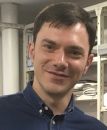
Robert Blasiak University of Tokyo, Japan
Session 3 Invited Speaker
Robert is a visiting researcher at the University of Tokyo’s Laboratory of Global Fisheries Science, a post-doctoral fellow at the Stockholm Resilience Centre, and a senior fellow with the NEREUS program. He has focused on different aspects of cooperation and conflict related to ocean management, with recent publications on the BBNJ process (biodiversity in areas beyond national jurisdiction). Robert completed studies at the University of Massachusetts-Amherst (BA), Lund University (MA) and University of Tokyo (PhD).
Adverse impacts on coastal ocean ecosystems: How do we best measure, monitor, understand and predict?
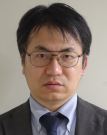
Yuichi Hayami Institute of Lowland and Marine Research (ILMR), Saga University, Japan
Session 4 Invited Speaker
Yuichi Hayami is an associate professor of the Institute of Lowland and Marine Research, Saga University. He received Dr. (Agriculture) in fisheries science at Kyoto University in 1997. His major is coastal oceanography and limnology who makes research with observation, data analysis and numerical modelling. His research interest is mass transport and ecosystem dynamics in lakes and coastal waters. Now, he is mainly making research on the environmental and fisheries problems in Ariake Sea, Japan.
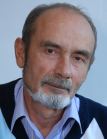
Peter Zhadan V.I. Il´ichev Pacific Oceanological Institute (POI), Russia
Session 4 Invited Speaker
Dr. Peter Zhadan is the head of the Laboratory of Pollution and Ecology Research of the V.I. Il’ichev Pacific Oceanological Institute, Far Eastern Branch, Russian Academy of Sciences. He is a specialist in the field of reproductive biology of marine bottom invertebrates. For the last ten years, he is conducting research work on the influence of environmental factors on the reproductive cycles and triggering the spawning of bottom invertebrates inhabiting the coastal waters of the northwestern Sea of Japan, using a complex methodological approach that includes both traditional methods of gonad examination and the video recording of the behaviour combined with automatic datalogging of environmental variables in the habitats of the animals.
Coastal ecosystem conservation and challenge
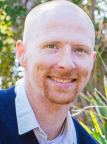
Cody S. Szuwalski University of California, Santa Barbara, USA
Session 5 Invited Speaker
Cody Szuwalski is research faculty at the University of California, Santa Barbara in the Sustainable Fisheries Group within the Bren School of Environmental Management and Science. His research focuses on understanding the dynamics of exploited marine populations and ecosystems, developing models to simulate these dynamics, and evaluating the impacts of changes in management in these systems under uncertainty (e.g. climate change, trophic interactions, or life history). Geographically, his research is currently split between China (e.g. projecting the benefits of management reform using ecosystem models) and Alaska (e.g. performing stock assessments for Bering Sea crab stocks and management strategy evaluations under climate change scenarios).
Interannual variability in marine ecosystems and its coupling with climate projections
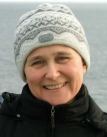
Elena Ustinova Pacific Fisheries Research Centre (TINRO-Centre), Russia
Session 6 Invited Speaker
Dr. Elena Ustinova is a leading scientist of Fisheries Oceanography Laboratory at the Pacific Fisheries Research Centre (TINRO-Centre), Vladivostok, Russia. She holds the professional title of Oceanographer from the Far-Eastern State University (Vladivostok, Russia) in 1987. Elena received her PhD in Oceanography from Russian Academy of Science in 1995. Her scientific interests include multi-scale climate variability and climate changes in the Far-Eastern Seas and Northwest Pacific and their influence on fishery resources, midlatitude air-sea interaction, mesoscale processes, statistical analysis of observation and simulation data sets and environmental long-term forecasting. Although Elena is a physical oceanographer, she is interested in the interdisciplinary studies, collaborating with biologists to research the influence of the physical environment on the marine ecosystem, fishery resource dynamics and fishery. She was recently a contributing author for the Second Assessment Report on Climate Change and its Consequences in the Russian Federation and co-author of the book “Pacific Saury. Scientific Information Guidance of Fisheries Expedition”. Elena contributed to the scientific cruises on the R/Vs of TINRO-Center to the Far-Eastern Seas and Northwest Pacific and to the several fisheries expeditions as a member of scientific groups. She is a member of the PICES Physical Oceanography and Climate Committee of PICES. Elena also served as a member of the PICES WG-20 on Evaluations of Climate Change Projections and WG27 "North Pacific Climate Variability and Change". Now she is working on a new PICES working group WG38 "Mesoscale and Submesoscale Processes".
Marine ecosystem health and human well-being: A social-ecological systems approach
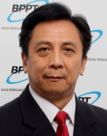
Suhendar I Sachoemar Agency for the Assessment and Application of Technology (BPPT), Indonesia
Session 8 / HD-Paper Session Invited Speaker
Dr. Suhendar I Sachoemar is Professor of Coastal and Fisheries Resources Management at Center of Agriculture Production Technology. Currently he serves as Director of Center for Development, Education and Training of Agency for the Assessment and Application of Technology (BPPT) in Jakarta, Indonesia. Also, serves as a national group leader of physical oceanography group of Japan Society for the Promotion of Science (JSPS) Asian Core Program to establish research and education network on coastal marine science in Southeast Asia and Head of Indonesian Researcher Society of BPPT. Suhendar’s research activities are focusing on the assessment of coastal and fisheries resources management using satellite oceanography, field observation as well as fisheries oceanography and hydro-oceanography dinamyc study. At the moment, he is doing a research of Sato Umi Concept application for developing sustainable aquaculture model within Indonesian coastal area collaborate with North Pacific Marine Science Organization (PICES). He also engage on the research creating new strain of fish to support national food security, increasing fisheries productivity of the aquaculture and national fisheries techno park program. This activity is directed to optimize utilization of marginal and idle brackishwater pond in the coastal areas of Indonesia and to anticipate the changes of the coastal environment due to the climate change and global warming. Suhendar is also active on various national and international scientific meeting and dissemination of research result related on the sustainable fisheries resources and coastal management.
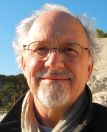
Charles Trick (Western University, Canada)
Session 8 Invited Speaker
Dr. Trick is the Distinguished Research Professor in the Faculty of Science, Western University (Canada). A phytoplankton physiologist at heart, his research and teaching bridges the science of ocean resources and ecological functions with the public health aspects of coastal communities.
Meso-/submeso-scale processes and their role in marine ecosystems
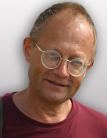
Sergey Prants V.I. Il´ichev Pacific Oceanological Institute (POI), Russia
Session 9 Invited Speaker
Sergey Prants is a professor in physics and mathematics, a head of Laboratory of Nonlinear Dynamical Systems and head of Department of Physics of the Ocean and Atmosphere at the Pacific Oceanological Institute in Vladivostok. His current interests include a development and application of new Lagrangian tools to study the ocean circulation, eddies, currents and fronts. Sergey study transport and mixing of water parcels in altimetry-derived and numerically generated velocity fields applying methods of dynamical systems theory and appropriate analysis of remote sensing data and data from satellite-tracked buoys and drifters. The developed Lagrangian methodology has been applied to analyze evolution of mesoscale eddies, to estimate a risk of contamination of mesoscale eddies by Fukushima-derived radionuclides and to identify Lagrangian fronts favorable for fishing in the Asian marginal seas and the North Western Pacific. Many results obtained have been summarized in a new coming book “Lagrangian oceanography: large-scale transport and mixing in the ocean”. Berlin, New York. Springer Verlag. 2017. 300 p. by S.V. Prants, M.Yu. Uleysky and M.V. Budyansky.
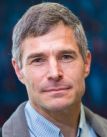
Rob Suryan Oregon State University, USA
Session 9 Invited Speaker
Dr. Rob Suryan is an Associate Professor – Senior Research in the Department of Fisheries and Wildlife at Oregon State University’s Hatfield Marine Science Center. For over 20 years Rob has studied the marine ecosystem processes and their effect on foraging ecology, reproduction, and population dynamics of mid to upper trophic-level consumers, particularly seabirds. He specializes in integrated ecosystem studies working with physical, biological, and fisheries oceanographers and developing programs to integrate and model predator response to changing prey availability or ocean climate. Rob also uses satellite remote sensing applications to study atmospheric and oceanographic effects on predator distribution, identification of biological hotspots, and the effects of climate variability. He has used state of the art electronics to study foraging, migration, and dive patterns of seabirds and integrated these data with in-situ and remotely-sensed measures of prey resources or their proxies. Research methodologies include remote sensing time series analyses, habitat modeling, stable isotope analyses for dietary and food web studies, animal tracking, colony-based observational studies, and vessel-based surveys. Rob applies results from many of these studies to address seabird-fishery interactions, marine spatial planning, and other human-marine resource interactions
Emerging issues in understanding, forecasting and communicating climate impacts on North Pacific marine ecosystems
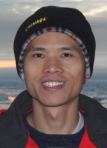
Zhongyong Gao Third Institute of Oceanography, SOA, China
Session 10 Invited Speaker
Dr. Zhongyong GAO is a group leader of Polar marine-atmospheric chemistry of the Third Institute of Oceanography (TIO), State Oceanic Administration (SOA), P.R. China. National delegate of AMAP Arctic Ocean Acidification Assessment Workshop and PICES S-CC and WG-39 He has continually joined the CHINARE Arctic cruises and focused on understanding biogeochemical cycling of carbon and ocean acidification in the Bering Sea and the Western Arctic Ocean (WAO). Analalied by CO2 system and related parameters, different water masses were identified by their different biogeochemical characteristics. He has divided the Bering Sea and WAO into different areas judged by carbon uptake ability, showed the anually variations from 1999 to 2016 in both areas, and revealed different responses to the climate change. Also stuyied the tranfer and exchange of material from basin to slope and Shelf. The great influces of north Pacific inflow water to the Western Arctic Ocean were revealed, not only on carbon cycling, but also on ocean acidification.
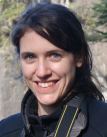
Desiree Tommasi NOAA SWFSC, USA
Session 10 Invited Speaker
Dr. Desiree Tommasi is a research scientist at the Cooperative Institute for Marine Ecosystems and Climate of the University of California, Santa Cruz, working at the National Oceanographic and Atmospheric Administration’s Southwest Fisheries Science in La Jolla, CA, USA. She received her BSc and MSc in Biology from Simon Fraser University, Canada, and her PhD in Oceanography from the University of British Columbia, Canada. Desiree is a biological oceanographer whose research aims to understand the effects of climate change and climate variability on marine ecosystems, and to apply this understanding in support of fisheries management decisions. Her recent work has focused on assessing how state-of-the-art seasonal to multi-annual climate predictions can be incorporated into fisheries management frameworks to improve fisheries forecasts, harvest guidelines, and other benchmarks routinely employed by fisheries managers. She is also developing management strategies evaluations for fisheries to quantitatively evaluate the utility of environmental information to fisheries management decisions.
Environmental variability in Arctic and Subarctic ecosystems and impacts on fishery management strategies
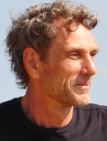
Yury Zuenko Pacific Fisheries Research Centre (TINRO-Centre), Russia
Session 11 Invited Speaker
Dr. Yury Zuenko is a Head of the Fishery Oceanography Lab. of the Pacific Fisheries Research Center (TINRO) in Vladivostok, Russia. Influenced by demands of fisheries industry (and PICES development, too), his scientific interests drifted gradually from water structure and physical processes on shelves to ecosystem functioning and fish stocks dynamics under climate change. Now he focused on understanding the fish reproduction and feeding strategies on the background of seasonal succession in zooplankton, as possible mechanism of the climate change downscaling to regional or local scale of fish stocks. Some findings in this direction are used in the fishery forecasts for such important commercial species as sardine, saury, pollock, saffron cod, dace. Yury took part in PICES activity during the whole its long history, being a member of several working groups and task teams, convener of many sessions, and almost unchallenged delegate from Russia in Physical Oceanography and Climate Committee, now its vice-chairman.
Seasonal and climatic influences on prey consumption by marine birds, mammals and predatory fishes<

Jock Young CSIRO, Tasmania, Australia
Session 12 Invited Speaker
I began my career working offshore studying the ocean currents surrounding Australia and the fauna they support. This led, almost sequentially, from plankton and larval studies through midtrophic fauna and finally to top predators, particularly tunas and billfish. In 2004 I was invited into the beginnings of the international CLIOTOP program, which had the broad aim of identifying the impacts of climate change on ocean top predators, particularly tunas. I co-chaired Working group 3 (Trophodynamics of ocean top predators) with my colleagues Bob Olson (IATTTC, USA) and Frederic Menard (IRD, France). Our goal was to combine the data from the many food web studies carried out worldwide into one data base from which we could draw a better understanding of the impacts of fishing and ocean warming on the tunas and other predators. This work still continues and is now being extended by a new generation of marine scientists.
Joint PICES-ICES Session on Anthropogenic effects on biogeochemical processes, carbon export and sequestration: Impact on ocean ecosystem services

Farooq Azam Scripps Institution of Oceanography, UC San Diego, USA
Session 13 Invited Speaker
Dr. Farooq Azam is a microbial oceanographer and a Distinguished Professor at Scripps Institution of Oceanography, University of California, San Diego. For over four decades Azam and his students and postdocs have been contributing to the understanding of the role of microbes in the functioning of marine ecosystems and global ocean carbon cycle. Azam has made conceptual advances in several areas of marine microbiology. Early in his career, and together with his student Jed Fuhrman, Azam developed a method for measuring bacterial productivity and demonstrated that bacterial productivity is a major carbon flow pathway in marine ecosystems. In exploring the underlying mechanisms Azam has shown the critical importance of nanometer (molecular) to millimeter scale interactions of microbes to a patchy distribution of nutrient fields and organic matter—that these microspatial interactions have global ocean scale consequences for carbon cycling and sequestration and for climate.
The role of the northern Bering Sea in modulating the arctic II: International interdisciplinary collaboration

Maria Pisareva Polar Oceanography Group, P.P. Shirshov Institute of Oceanology (IO) RAS, Russia
Workshop 1 Invited Speaker
Maria N. Pisareva is a Researcher at Polar Oceanography Group of P.P. Shirshov Institute of Oceanology (IO) RAS, Moscow, Russia. She has received her specialists' degree in oceanology from Lomonosov Moscow State University and is currently finishing her PhD program at IO RAS (thesis defence date is set for fall 2017).
Maria has been extensively studying hydrographic processes of different scales in the Arctic Ocean - from the variability of the Arctic Basin's waters to formation and development of internal waves in the Arctic fjords, recently focusing on mesoscale processes, water masses formation and transformation under various physical forcing mechanisms. Since 2011 Maria has been an active member of RUSALCA program and has participated as a physical oceanographer in 9 Arctic cruises. Her current research interests focus on the structure and dynamics of the water masses in the Chukchi Sea and Alaskan Arctic shelf.
Coastal ecosystem services in the North Pacific and analytical tools/methodologies for their assessment
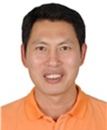
Benrong Peng Xiamen University, China
Workshop 2 Invited Speaker
Dr. Benrong Peng is the deputy director of Ocean and Coastal Management Institute (COMI), professor of College of Environment and Ecology (CEE), Xiamen University. He got his PhD degree on environmental science and engineer from Xiamen University in 2005. His researches cover environmental and natural resources economics, ecosystem based ocean and coastal management, evaluation of coastal ecosystems' services, impact of climate change on marine environment and economy, ecological damage assessment and compensation, etc. He has been strongly involved in decision making of local and national government and establishment of standard of sea area use charge and ecological damage compensation.
Linking oceanographic conditions to the distribution and productivity of highly migratory species and incorporation into fishery stock assessment models
Yong Chen School of Marine Sciences, the University of Maine, USA
Workshop 3 Invited Speaker
Dr. Yong Chen is a Professor of Fisheries Science in the School of Marine Sciences at the University of Maine in Orono, Maine. He received his Bachelor of Agriculture degree (1983) in fisheries science from the Ocean University of China and MS (1991) in Zoology (Fish Ecology) and PhD (1995) in Zoology (Fish Population Dynamics with a minor in statistics) degrees from the University of Toronto in Canada. He started his career as a fisheries stock assessment scientist in the New South Wales Fisheries Department in Sydney, Australia in 1995. In 1997, he was appointed Assistant Professor of Fisheries Population Dynamics and Canadian Natural Science and Engineering Research Council (NSERC) Associate Chair in Fisheries Conservation at Memorial University of Newfoundland. He moved to the University of Maine in 2000 and was promoted to the rank of Full Professor in 2007.
Dr. Chen’s research is focused primarily on fisheries population dynamics, statistical modeling, monitoring program design, fisheries ecology and stock assessment. He has extensive expertise working on the life history, habitat, development of monitoring programs, and spatio-temporal dynamics for fish populations and fish communities of commercial and recreational importance. He and his students work very closely with the fishing industry, NGOs, and state and federal agencies to address problems facing fisheries stock assessment and management. The stock assessment framework developed in his program iscurrently used in assessing all three America lobster stocks in the northeastern USA. Dr. Chen is actively involved in community and professional service, including peer reviewer for scientific journals and funding agencies. He is currently a member of the New England Fisheries Management Council’s Scientific and Statistical Committee. He is Editor of the Canadian Journal of Fisheries and Aquatic Sciences.
His lab webpage is located at https://umaine.edu/chenlab/
Long-term changes in HAB occurrences in PICES nations; the Eastern vs. Western Pacific

Nicholas Bond University of Washington, USA
Workshop 4 Invited Speaker
Nick Bond is a principal research scientist with the Joint Institute for the Study of the Atmosphere and Ocean (JISAO) of the University of Washington (UW) and also holds an appointment as an affiliate associate professor with the Department of Atmospheric Sciences at the UW. He is the State Climatologist for Washington. He has a Ph.D. in Atmospheric Sciences from the University of Washington. His research is on a broad range of topics with a focus on the weather and climate of the Pacific Northwest and the linkages between the climate and marine ecosystems of the North Pacific. He cheerfully admits to being a weather geek, as evidenced by his preference to visit Alaska in winter, and steamy places like Florida in summer.
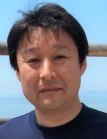
Keigo Yamamoto NOWPAP
Workshop 4 Invited Speaker
Keigo Yamamoto is a senior researcher of Research Institute of Environment, Agriculture and Fisheries, Osaka Prefecture. His major is phytoplankton ecology and he has been engaged in field investigation on phytoplankton and marine environment in Osaka bay, eastern Seto Inland Sea, Japan. Especially in these 15 years, he has been studied population dynamics of the toxic dinoflagellate Alexandrium tamarense and mechanism of contamination by paralytic shellfish toxin in bivalves.
Advantages and limitations of traditional and biochemical methods of measuring zooplankton production
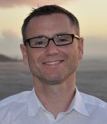
Andrew Hirst School of Environmental Sciences, University of Liverpool, U.K.
Workshop 6 Invited Speaker
Andrew Hirst’s research is focused on the ecology, physiology and evolution of aquatic organisms. He has worked to establish and test fundamental rules and principles of biology, at times by comparing diverse aquatic and air-living species. Andrew is a zooplankton ecologist by training, having received his BSc Degree and PhD from the University of Southampton, UK. Much of his work has included quantifying the role of zooplankton, including their growth, fecundity, mortality and secondary production. In developing new perspectives he has used diverse methods, including experimentation, fieldwork, theory and meta-analysis.